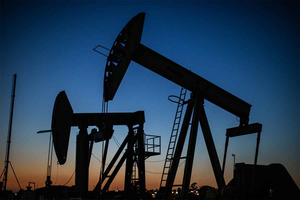Business
India likely to add 35-40 MT crude oil refining capacity by FY30

New Delhi, Sep 27
India’s oil marketing companies (OMCs) are expected to add 35-40 million tonnes (MTs) of crude oil refining capacity and take the installed base to 295 MT by the end of fiscal 2030, a report said on Friday.
That would require a capital expenditure (capex) of about Rs 1.9-Rs 2.2 lakh crore, with most of the capacity additions being brownfield expansions, according to a report by Crisil Ratings.
“We expect overall petroleum product consumption to slightly moderate and register 3 per cent CAGR over the next six years, primarily due to slower growth of 2-3 per cent in transport fuel consumption,” said Anuj Sethi, Senior Director, Crisil Ratings.
This will be caused by improving fuel economy, rising share of vehicle sales with alternative cleaner fuels, and 20 per cent ethanol blending target proposed by the government, he added.
In the decade through fiscal 2024, India’s refining capacity increased by 42 MT to 257 MT, primarily to cater to the growing domestic consumption, as exports remained rangebound at 60-65 MT over these years.
According to the report, domestic consumption of petroleum products logged a compound annual growth rate (CAGR) of 4 per cent in the past decade.
Transport fuels, accounting for 56 per cent of consumption, grew 4 per cent, while naphtha (7 per cent of consumption), grew 2 per cent.
Among transport fuels, 75 per cent of diesel sale is linked to commercial vehicle usage in India, wherein a move towards electric vehicles or usage of natural gas by buses would lower diesel demand, thereby moderating growth to 2-2.5 per cent CAGR over the next six years.
For petrol, internal combustion engines (ICE) based two-wheelers account for 75 per cent of consumption in India, with the balance led by passenger vehicles.
According to Joanne Gonsalves, Associate Director, Crisil Ratings, they have also seen the oil refiners balancing out their operating profits amid volatility seen in oil prices, wherein $9-11 per barrel of rolling average returns were earned between fiscals 2016-2024, recording a return on investments of 12-14 per cent.
“Further, the sector benefits from its strategic importance to the government,” said Gonsalves.



































